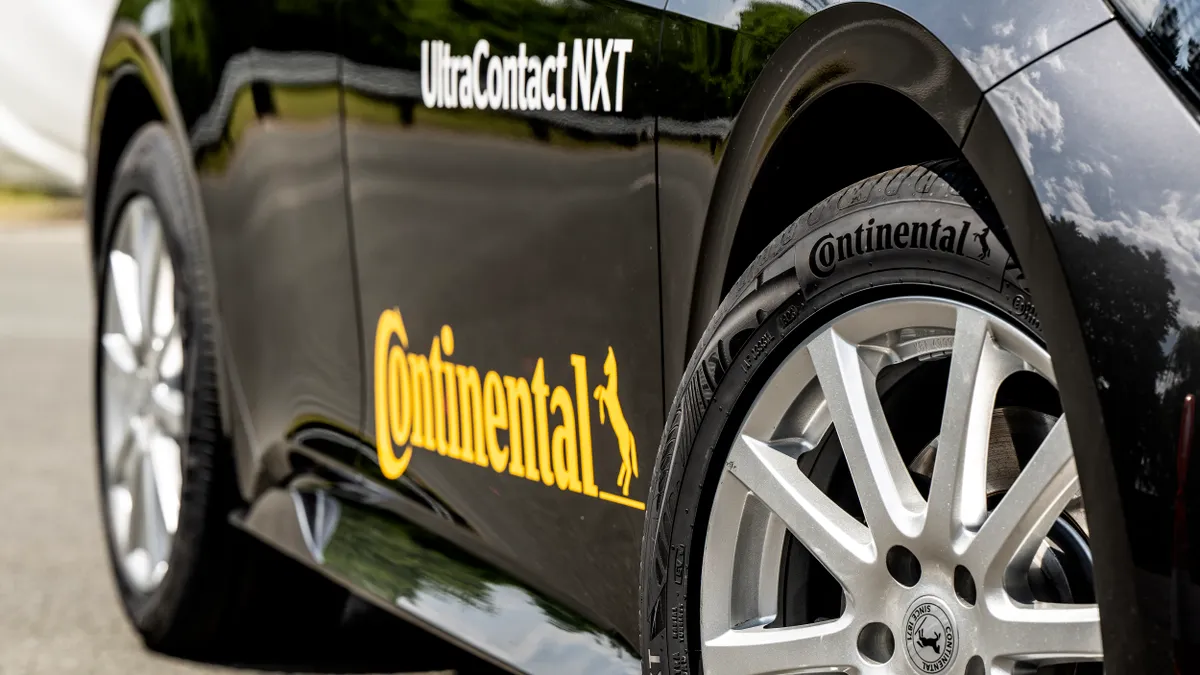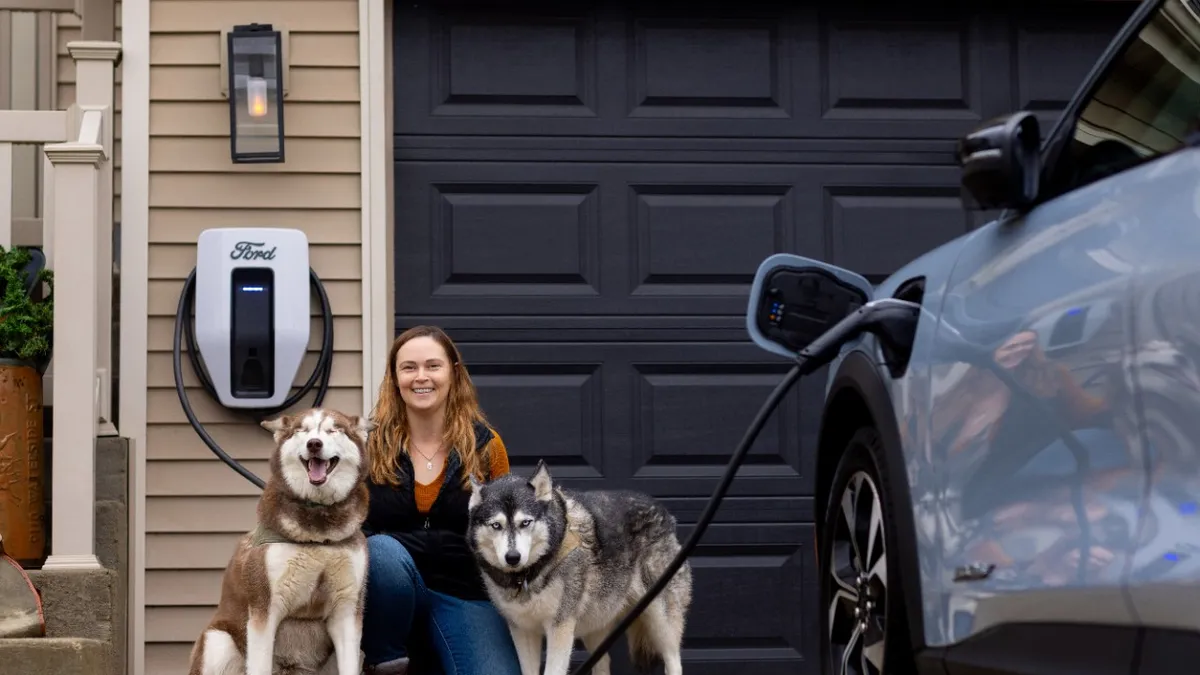Dive Brief:
- Continental reported consolidated sales of $11.4 billion in the second quarter, a 10.4% jump compared to the same period last year, the company said in a press release. The increase in sales was largely the result of strong tire sales and high order intake in automotive parts of roughly $9.4 billion.
- The company’s adjusted EBIT in Q2 was $545 million, a 24.1% increase from the same period last year. Adjusted EBIT margin increased to 4.8% percent from 4.3% a year ago.
- Despite strong tire and auto parts sales in Q2, Continental lowered its adjusted outlook for its tire business to $15.3 billion to $16.4 billion from $15.9 billion to $17 billion due to declining markets in Europe and the U.S., inflation and rising freight costs.
Dive Insight:
As the global auto industry recovers from supply chain setbacks, Continental’s auto parts and tire business increased in Europe, China and the U.S.
Continental’s automotive group sales increased by 19% to $5.6 billion. Despite the significant increase, the company says its automotive sales fell short of expectations, with an adjusted EBIT margin of -0.6%.
Sales for Continental’s tires group increased to $3.8 billion despite declining volumes, a 2.3% increase from last year. Adjusted EBIT margin on tires was 13.7%. The growth was attributed to taking a high share of the premium market.
“Despite difficult market conditions, our tires group sector ended the second quarter with good earnings once again,” said Continental CEO Nikolai Setzer in a press release.
According to Continental, year-over-year vehicle production in Europe increased by over 15% to around 4.4 million units through June 30. In North America vehicle production increased to 4.1 million units. China’s vehicle output jumped by 20% to around 6.6 million units.
Continental also achieved an order intake of around $9.4 billion from its automotive group, which was boosted by its exclusive partnership with U.S. autonomous trucking developer Aurora. Continental is supplying the entire integrated hardware and software system that will be installed on each of Aurora’s Class 8 autonomous trucks.
The business partnership with Aurora alone will generate order intake of around $5.3 billion, according to Continental. The autonomous driving technology stack supplied by Continental, which will generate income based on miles driven, is expected to be available for freight carriers and commercial fleet operators across the U.S. by 2027.
Continental, however, expects significantly higher costs for materials, wages and salaries as well as energy and logistics for the rest of the year. These high expenditures are expected to impact earnings for the rest of the year by around $1.5 billion. The company’s outlook for adjusted EBIT margins remains unchanged.














